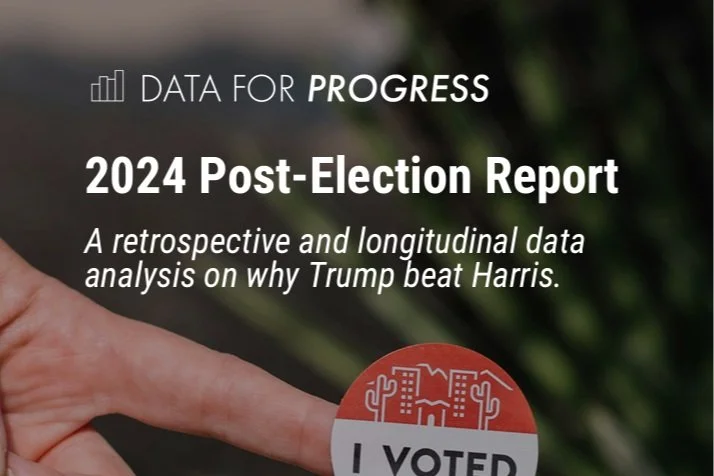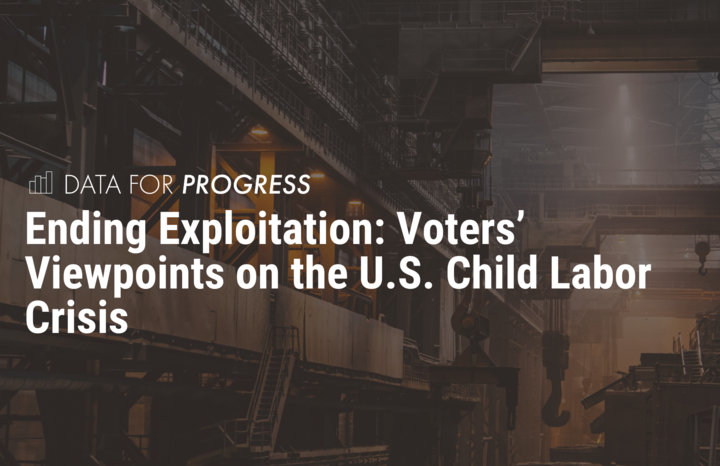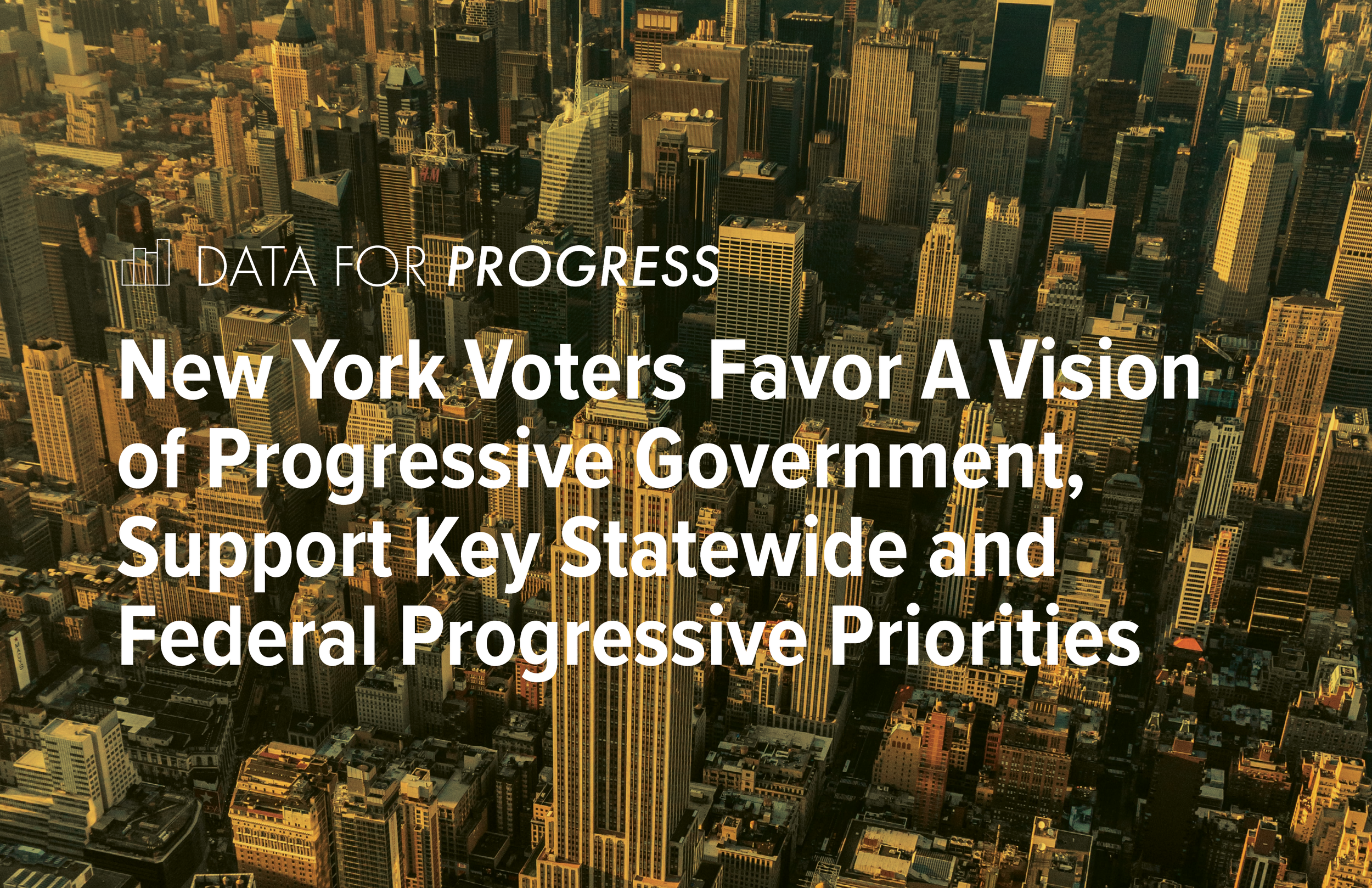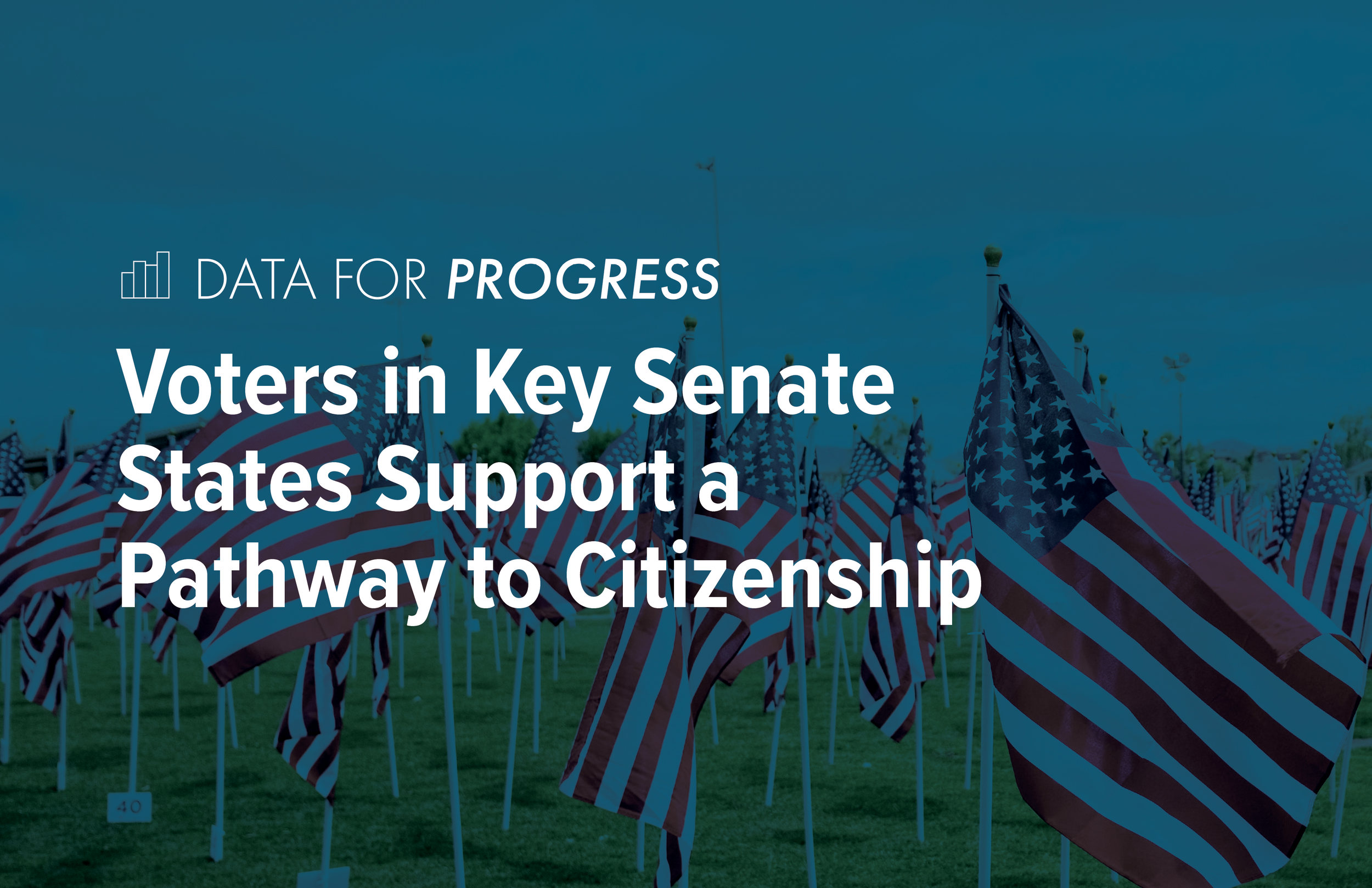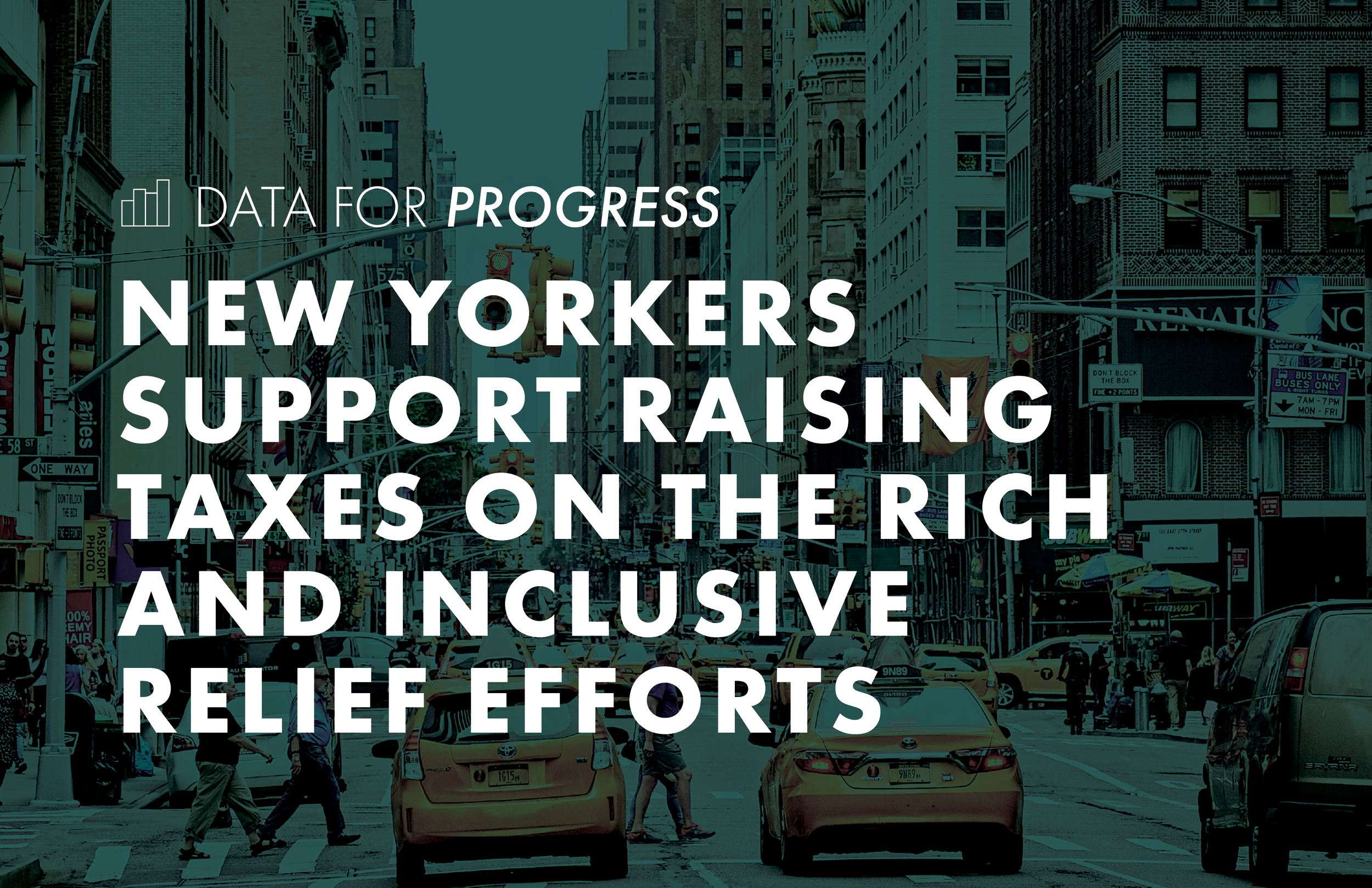A retrospective and longitudinal data analysis on why Trump beat Harris.
Read MoreA bipartisan majority of voters say government officials are responsible for preventing exploitation of minors regardless of their immigration status.
Read MoreIn August 2021 Data for Progress surveyed 823 likely New York voters, around a number of legislative priorities. We find that voters overwhelmingly agree with a progressive worldview of state government.
Read MoreFrom the end of April into early May, 2021, Data for Progress fielded surveys in ten states to measure support among likely voters for a pathway to citizenship for Dreamers, TPS-holders, farmworkers and other essential workers.
Read MorePresident Trump has spent his years in the White House undermining U.S. immigration policy.
Read MoreAs part of a September survey of likely voters in the state of New York, Data for Progress tested attitudes towards a slate of progressive proposals and measured attitudes towards raising revenue or cutting public services.
Read MoreAs the coronavirus has spread throughout Florida, not all communities in the Sunshine State have been impacted equally.
Read MoreAs the coronavirus continues to spread throughout the country, farmworker communities have been particularly hard hit.
Read MoreOver the last two years, Data for Progress and YouGov Blue have fielded twenty-five national surveys—totaling over 1,600 questions—to measure public opinion across various policy areas.
Read MoreThe first coronavirus relief bill (the Coronavirus Aid, Relief, and Economic Security Act, or CARES Act) was signed into law by President Trump on March 27, 2020, and excluded many immigrants from its delivery of direct payments to taxpayers and free coronavirus testing, among other provisions.
Read MoreAmidst the calls for “self-isolation,” thousands of immigrants are herded into detention facilities, which, for all intents and purposes, are prisons, where we know that the risk of infection is great. The solution to this crisis is simple: release people from detention and stop detaining people in the first place. But will the United States government rise to the call?
Read MoreA fundamental change is taking place within the Democratic Party. For decades, Democrats feared being called “liberal,” let alone “progressive.” Indeed, it was President Bill Clinton who declared the “era of big government” to be over. Now, however, Bernie Sanders, a senator from Vermont and a self-professed democratic socialist, is a frontrunner in the Democratic Party’s presidential primary. And it’s not just Sanders. First-year Congresswoman Alexandria Ocasio-Cortez rose to prominence following her endorsement by the Democratic Socialists of America (DSA), and she has quickly become one of the most recognizable and popular figures in the party.
Read MoreOver the last several years, progressives have increased their focus on how American political institutions are biased against groups in the Democratic coalition such as people of color, working class people, and young people. Efforts to increase access to the ballot box, reduce gerrymandering, and abolish the electoral college have gained attention, as have efforts to reform the Supreme Court. However, the most antidemocratic institution in America has received relatively little scrutiny: the United States Senate.
Read More
